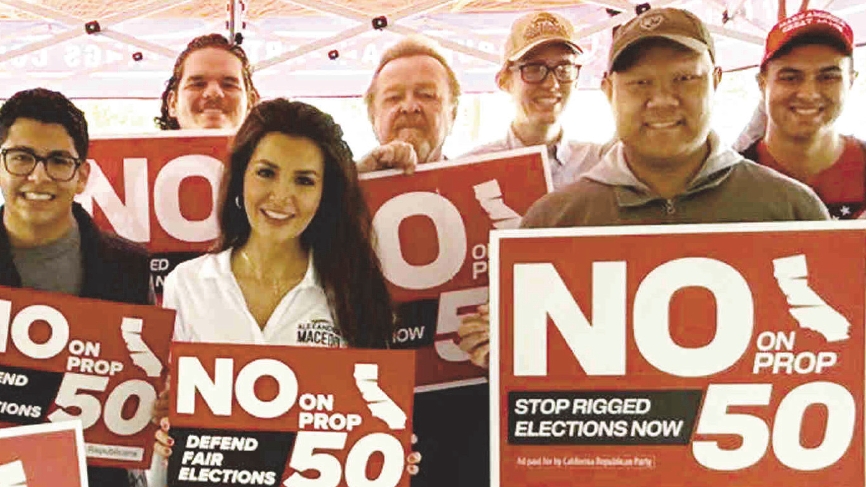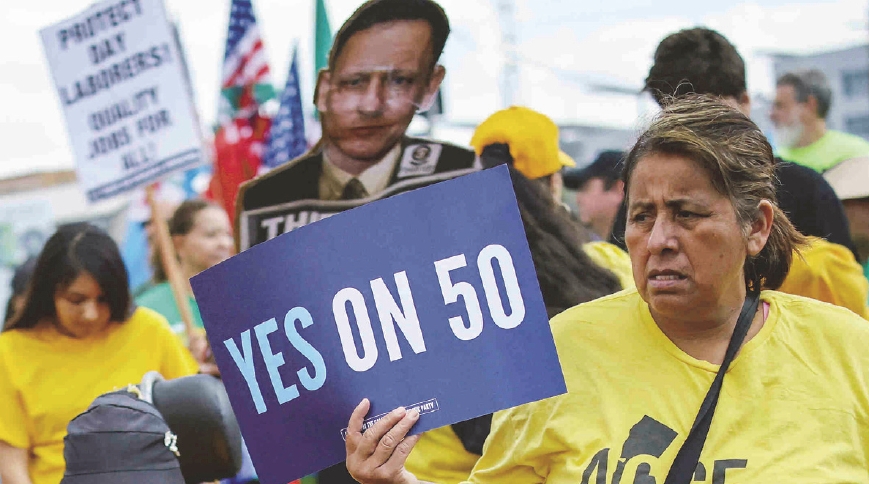With the California Proposition 50 vote approaching on November 4, the state faces a fierce political showdown over who controls its congressional map. Nearly half of registered voters remain undecided, turning the redistricting measure into one of the most unpredictable fights in recent memory.


According to CalMatters, citing a Cook Political Report poll published on October 21, among 917 registered voters, 32% supported Proposition 50, 19% opposed it, and 49% said they were still undecided. Of that group, 18% were “somewhat supportive,” 16% “somewhat opposed,” and 15% entirely undecided.
Experts say the final outcome will depend on which side can sway the large pool of undecided voters in the coming weeks. Amy Walter, editor of the Cook Political Report, said the anti-Proposition 50 camp faces “a difficult fight,” needing to win over both undecided voters and some weak supporters. She noted that many voters “feel uneasy about politicians drawing their own districts,” suggesting opponents could gain traction by stressing that concern.
Republicans have sharpened their messaging, releasing ads declaring, “Politicians Can Rig Elections,” to highlight what they call Democratic manipulation of the redistricting process. Jessica Millan, former chair of the California Republican Party, said her side is targeting independents and disillusioned Democrats, emphasizing the message: “Don’t hand more power to politicians.”
Democrats, meanwhile, have mobilized their base around anti-Trump sentiment, branding the measure as “a vote against former President Donald Trump’s agenda.” Labor unions and progressive organizations are pouring millions into voter outreach and ad campaigns to frame the initiative as a defense against right-wing policies.
The fight for Latino voters, who make up about 30% of California’s electorate, has become especially intense. Polling shows that less than half currently support Proposition 50, prompting Democrats to spend over $10 million on bilingual ads, phone banking, and partnerships with local community groups.
More than $100 million has already been spent on the campaign, drawing criticism as a “money election.” Republicans warn that if Democrats gain control over redistricting, California’s economic crisis and rising cost of living could worsen. Democrats counter that redistricting reform is essential to protect voter representation from partisan interference.
As November 4 nears, both sides are ramping up outreach in what has become a bitter test of political influence and public trust in California’s democracy.
BY KYEONGJUN KIM [kim.kyeongjun1@koreadaily.com]
![SSA to scrutinize overseas travel of Social Security beneficiarie An illustrative image of Social Security beneficiaries traveling abroad. [ChatGPT-generated image]](https://www.koreadailyus.com/wp-content/uploads/2026/02/0202-social-security-100x70.jpg)


![Korean Canadian wins $11 million lottery jackpot Lee Tae-sung, a Korean Canadian man living in Alberta, Canada, won 15 million Canadian dollars lottery jackpot prize. [Screenshot]](https://www.koreadailyus.com/wp-content/uploads/2026/02/0202-rottery-100x70.jpg)